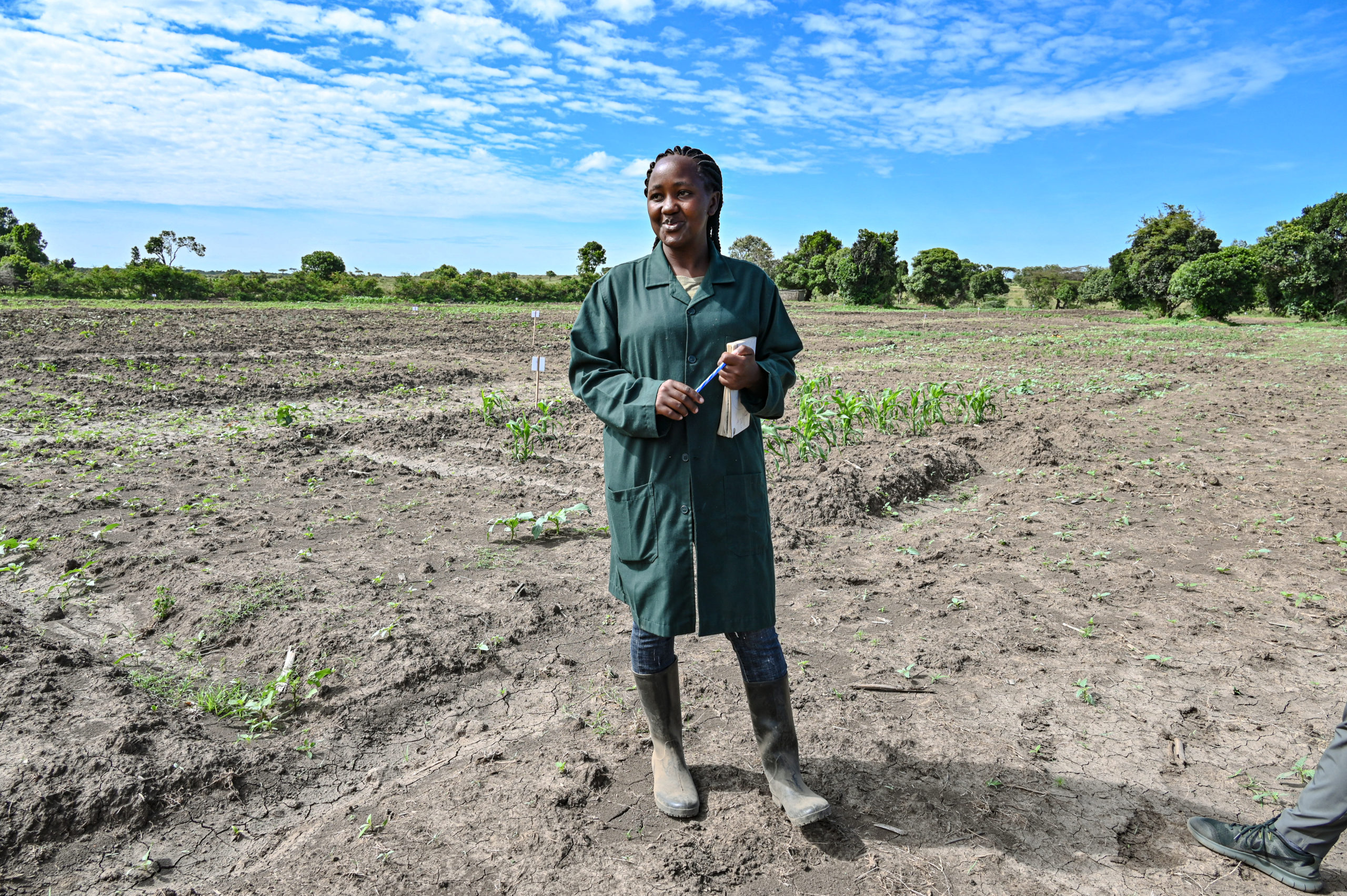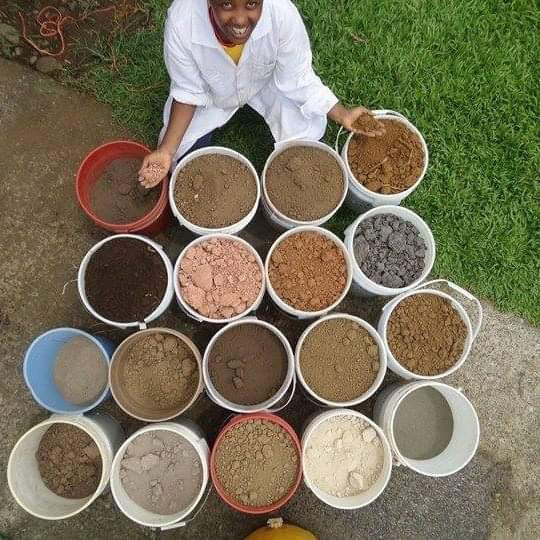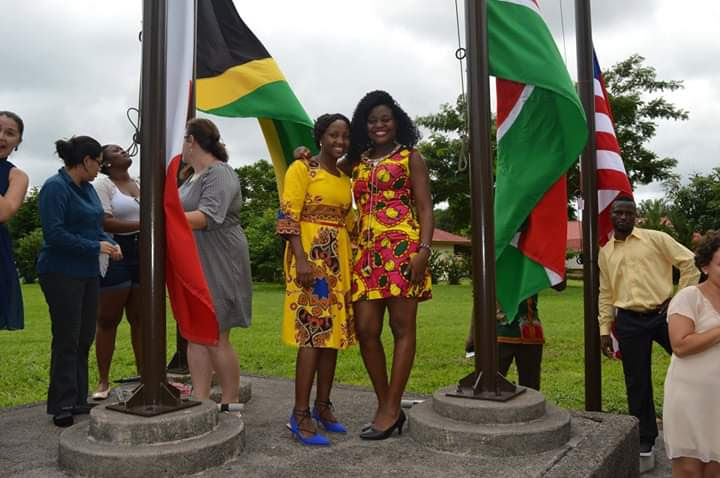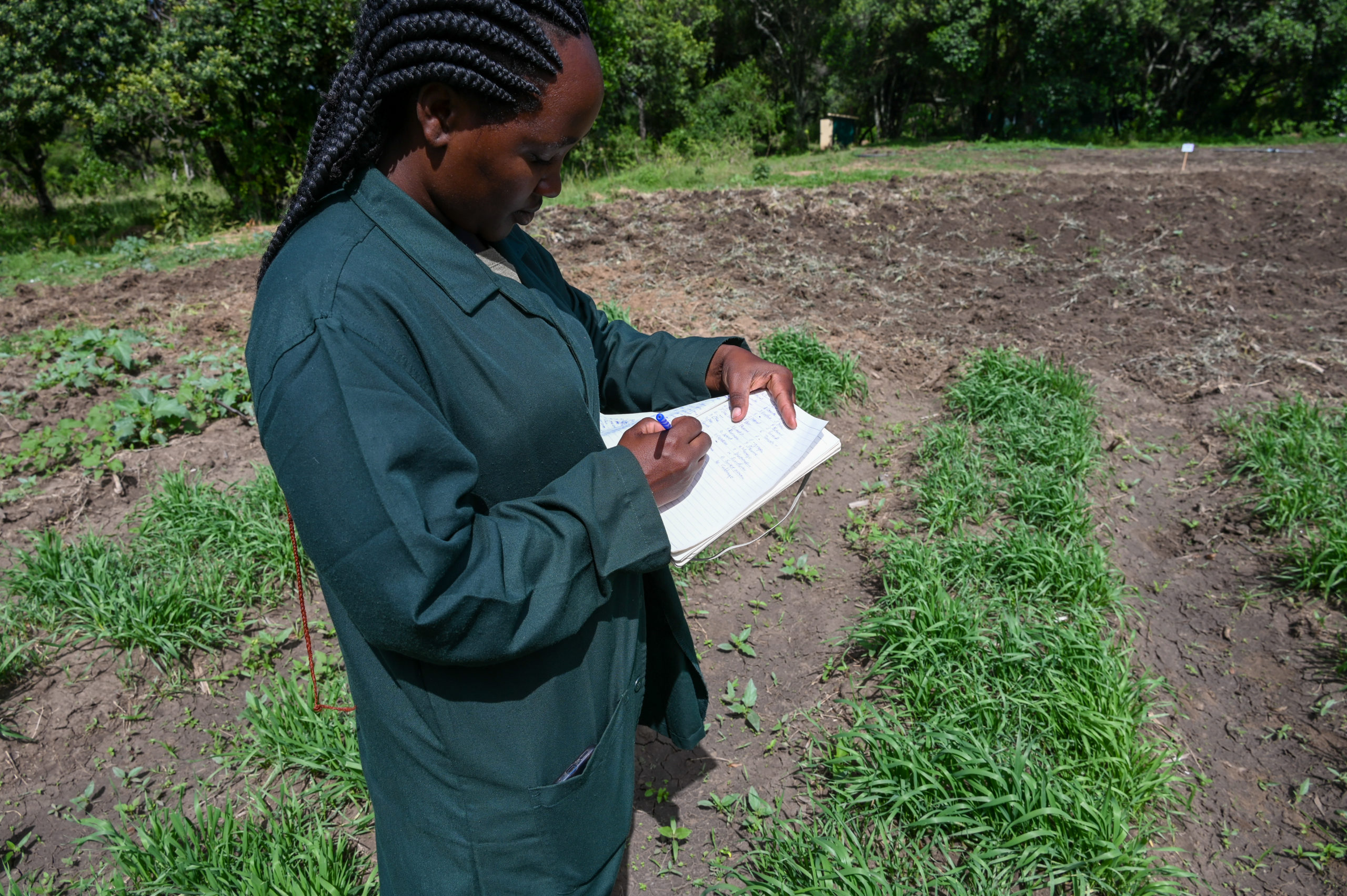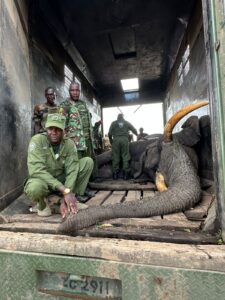Abigael is just your average working mother balancing her level of engagement at work and at home with two young children and her husband. Luckily, the oldest girl goes to school nearby and her “office” is right outside her front door; a short commute always helps. She does sometimes have rowdy neighbors like hippos, vervet monkeys and, most importantly, elephants that swing by and cause all kinds of damage in her backyard, which is actually helpful for her research.
“I am living on a farm designed to study what crops elephants and other wildlife most prefer to eat.”
It sounds like a stretch considering elephants raiding ripe appealing crops is a major source of tension in the Mara, one Mara Elephant Project (MEP) has spent the last decade mitigating. However, for MEP, the Experimental Farm Project is just the start of finding long-term solutions to the co-existence crisis, and Abigael Simaloi Pertet is the perfect woman to make it happen.
Abigael grew up in Kajiado, in the southern part of Kenya, just a few kilometers from the border of Kenya and Tanzania. While growing up, wildlife was just a part of daily life, and most of the conflict involved cheetahs or hyenas attacking livestock, but not many elephants.
Abigael started school locally and soon received a scholarship from the Maasai Girls Education Fund (MGEF) to attend Kajiado Hill Academy earning yet another scholarship, and a move to Nairobi, to attend Starehe Girls’ Centre & School. “I was a young girl with a lot of focus and ready to change my life, and my family’s lives as well,” she says. “So, I was so happy to get the opportunity to go to Nairobi and get out of my comfort zone.”
After high school, Abigael moved home and started experimenting with small scale farming in the area. Her community had been hit hard by drought and lost their source of income, livestock, quickly despite having access to large plots of land for grazing or growing crops. The community had a high level of malnutrition and food insecurity, a problem young Abigael knew she could help. “In our community we were pastoralists so we didn’t have a fresh supply of food including vegetables,” she says, “but I realized I could plant certain foods in a sack or a bucket and get fresh vegetables without having to buy them and with little management, so that’s what I did and what I taught my community to do.”
She soon took her passion to Nairobi University and studied environmental science, but a chance encounter thanks to MGEF changed her course. “MGEF sent out a notice to their current and former scholars that a visiting alumnus from EARTH University was giving a presentation at Nairobi University,” she says. “I went and after hearing about EARTH University’s model of education, being a fully agricultural university with huge cultural diversity, I was sold. I tenaciously pursued the opportunity because EARTH gave you hands-on learning in an actual farm with a team, and I had no doubt it could be a turning point for me and my community.”
After getting accepted, Abigael had to prepare to move to Costa Rica by attending an immersive Spanish program to make up for the language barrier, and she received a Mastercard Foundation scholarship to make up for the financial barrier. In January 2013, Abigael found herself on campus with 112 other students from the Caribbean, Africa and Latin America. She studied agronomic engineering, which involved learning practical skills in crop and soil science, entomology, post-harvest management, application of herbicides, waste and forest management, climate smart agriculture, community development, livestock feeds and agricultural equipment management. “Most of my friends still wonder at the fact that I can drive a tractor,” she says. Just one of the many skills she picked up at EARTH University. “When you graduate from EARTH University, the options in agriculture are endless because you are equipped with the knowledge and correct approach to sustainable agriculture that focuses on making communities better by giving them an income and respect.”
It also didn’t hurt that EARTH is located in Costa Rica, as Abigael says, “one cool country with amazing people.” During her time in school, she immersed herself in the culture and visited famous beaches in Guanacaste and Limon, saw the green acid crater lake at Volcano Poas and volunteered her time in Talamanca, a town bordering Panama, teaching about sustainable agriculture. Africa was never far, every August there is a Day for People of African Descent in Limon, which was a big celebration that allowed her to feel closer to home.
After graduation, Abigael moved back to Kenya and continued her work expanding her community’s sustainable farming practices. It was actually a fellow Kenyan student from EARTH University that sent Abigael the MEP Experimental Farm manager job posting, and Abigael found herself living on the farm with her two young children in late 2021. “I liked MEP’s new approach to finding solutions to human wildlife conflict through farming, and I knew this job was perfect for me,” she says.
The MEP Experimental Farm Project is led by Abigael and her team of five. Their days start early and end late, but the research is worth it. Overseen by Dr. Jake Wall, MEP’s director of research and conservation, the MEP Experimental Farm is exploring alternative crop scenarios that might help reduce the elephant crop-raiding pressure and diversify financial income for local farmers. “One of the things that we want to try to move towards is human-elephant co-existence,” says Dr. Wall. “One of our big goals is to come up with strategies for how elephants and people could live together peacefully.”
Since starting the farm, Abigael and her team have had many visitors from the nearby community and beyond who are excited and curious about their work. “We give a lot of farm tours.” People in this area of high conflict seem optimistic that we can work together to find a solution. “The neighboring farms had fully ripe maize just recently that were all eaten by the hippos that live in the river bordering the farm,” says Abigael. “It makes no sense to continue to plant food that will never be harvested for humans because of wildlife. I can help them find better alternative crops or solutions for keeping pests out all while protecting the wildlife we share this space with.”
The MEP Experimental Farm recently did their first harvest of vegetables, and they had community members from the area streaming in for the organic produce. Abigael is especially proud of being a mother who can help other mothers feed their families.
“I’ve had especially great interactions with women. We speak the same language and understand the issues affecting women and their families. I have talked with most of them about the education of their daughters, since I have two of my own, and I’m a product of what happens when women are empowered. I would like their daughters to get the same opportunity in conservation through education that I did, and I will be a constant reminder to them that there is power in education.”
Like most mothers, Abigael is looking toward a future that is bright for her girls. She feels especially lucky that she gets to raise them to view wildlife not as pests. “I’m happy that each day the girls see animals from the other, more positive, side. My firstborn knows how to say ‘hippo’ and ‘crocodile’ in three languages, and it is just amazing.” Abigael also knows that she’s here because of wildlife, educational opportunity and a Kenyan tenacity to find solutions to a co-existence crisis that continues to grow. “What better motivation can one have than being part of a solution in the field that I love?” A field that is bringing change to the Mara, one crop at a time, one community at a time and one woman at a time.
You can support Abigael’s work at the Experimental Farm in honor of International Women’s Day.
